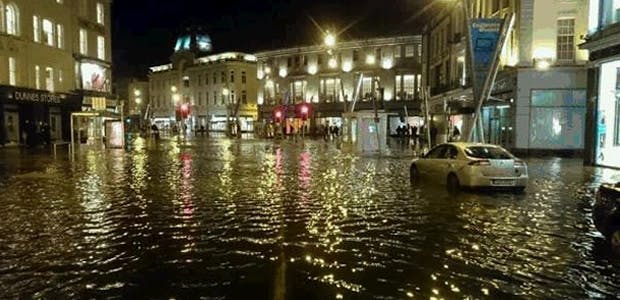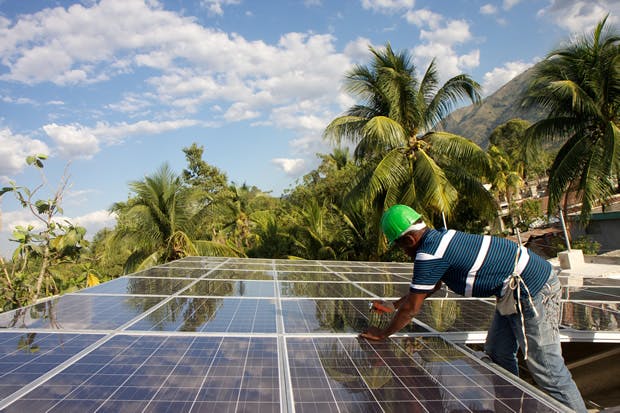Everybody’s talking about the crazy weather. The polar vortex walloped the Eastern United States with ice and snow while the West suffers through extreme drought. Big parts of Britain were hit by record-breaking floods. January 7 was the hottest day in Australian history, with an average high temperature of 105°F over the entire country.
These unusual events are not unusual in themselves – but the pattern is consistent with what scientists have told us about climate change. The Earth is mostly covered by water, so when you heat it up, water evaporates into the atmosphere – and whatever goes up must come down. All that extra water vapor turns into heavy precipitation events. So some places get hotter and drier, and others get a lot wetter.
What’s happening is that words are turning into action: The predictions of scientists are showing up as real impacts of climate change. Now we have to turn our words into action on the solutions side and get serious about making our energy systems cleaner and more efficient.

Hundreds of scientists from around the world have been working for the last five years to review and report on the most current scientific research, as part of the United Nations’ Intergovernmental Panel on Climate Change (IPCC). Last fall, their first report said the certainty of human impact on the climate is now 95 percent. The activities of 7 billion people on the planet are changing the very air we breathe and the composition of the oceans.
This spring, the IPCC will release two more reports, about the consequences of climate change and solutions to mitigate it. And in September, the United Nations Secretary-General will host a Climate Summit for heads of state to set the stage for a new global agreement in 2015 and inspire new commitments to action.
There is good reason for optimism: By moving to a low-carbon future, we can cut pollution, create new jobs and industries, and put our planet on a sustainable path. The cost of clean energy continues to drop; cities from New York to Buenos Aires are taking action to respond to the challenge; and researchers and entrepreneurs are developing innovative new technologies that will save consumers money and create new ways to manage energy use.

Transforming the world’s energy systems will take decades, but we will end up better off as a result. Technology is moving rapidly toward the day when the cleanest energy is also the cheapest.
Everyone has a role to play, and everyone has something to gain. Our climate system affects the health of the oceans and our most precious natural areas. It maintains our food supply, contains the spread of diseases like malaria and West Nile virus, and helps our lives and economies flourish.
A healthy climate is also essential to eradicating poverty and hunger, protecting public health, and creating economic opportunity. The UN’s Sustainable Energy for All initiative is mobilizing the public and private sectors to advance energy efficiency and sustainable energy solutions, even as it works to ensure that everyone has access to electricity and clean fuels.
That’s why this year must be the year that citizens around the world become climate champions and let their leaders know that we can’t afford to wait any longer for concrete, substantial action. This year must be the year where we start doing what we know is right.
When it comes to climate change, we already have solutions, and now we need to help the world – our leaders, our industries, and our communities alike – to adopt them everywhere. We can be the generation that leaves our children and grandchildren with a cleaner, safer, inhabitable world. The alternative is unthinkable.
TAKE ACTION: To learn more and get involved, visit Climasphere.org, follow @climasphere on Twitter, or like Climasphere on Facebook at Facebook.com/Climasphere.



 View All Blog Posts
View All Blog Posts